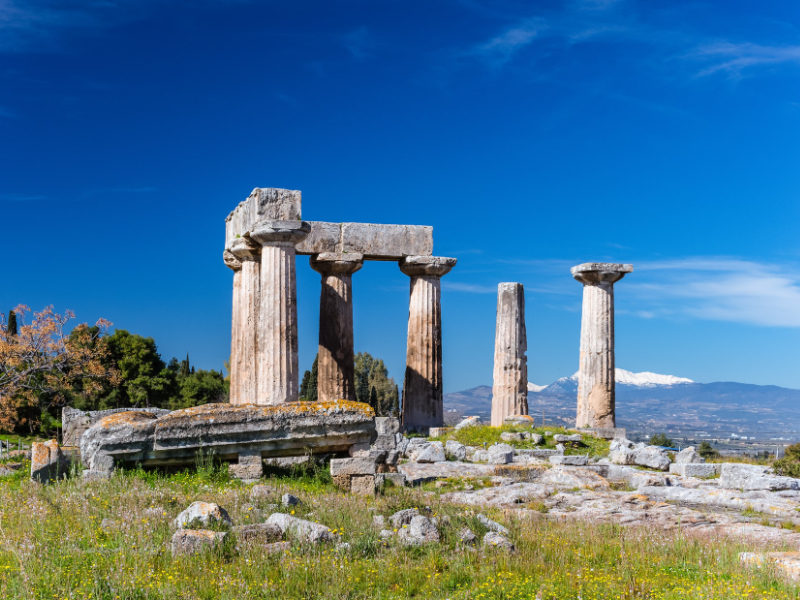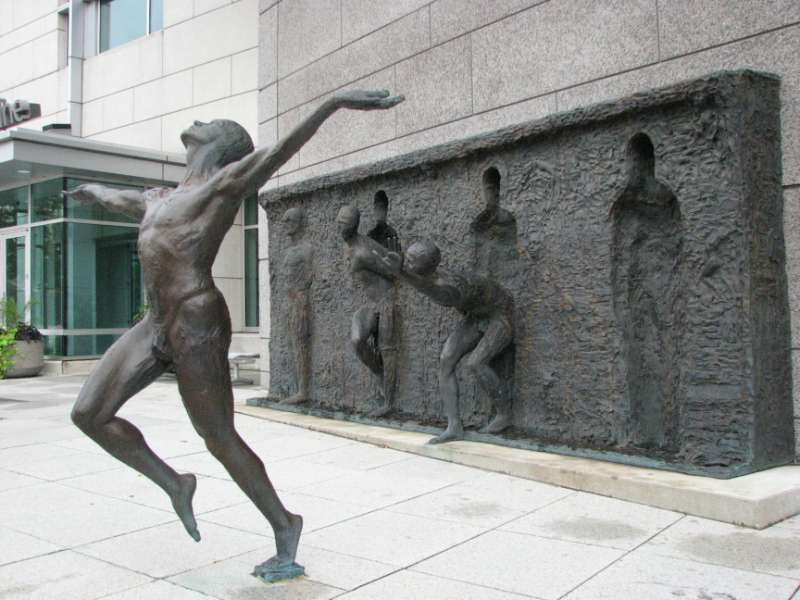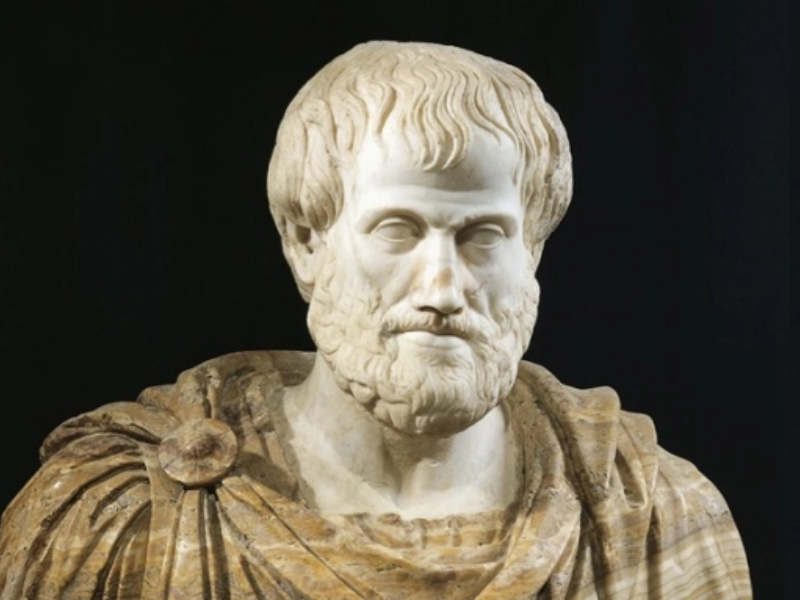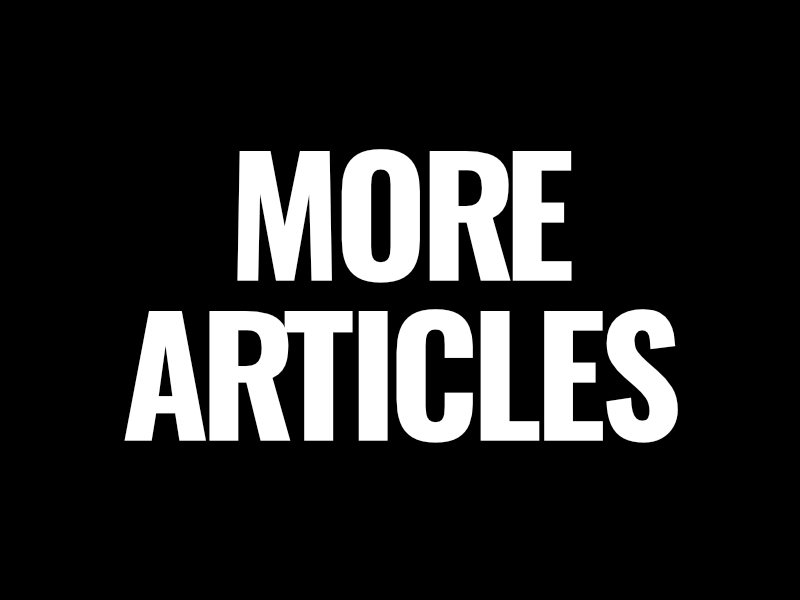What is Science?
– Finding Our Epistemological Base –

Today we’re going to continue down our epistemological path, to strengthen our core beliefs, the very foundation of the relative world. We’re going to move past what we believe and instead continue to explore the why and how that sit behind our entire collection of beliefs. We’re going to deepen our roots to give us strength and stability in our understanding and in our lives.
And, in addition to the motivations and intentions I have already stated in previous episodes, let me add one more. I wish to shed light on the history of epistemology to also help combat the spread of misinformation and any other assertions that claim to be backed by “Science.”
Science has unfortunately become almost entirely void of meaning. We often throw it around, in large part unconsciously, when we wish to put some authority behind a claim. I see advertisements claim that their goods or services are backed by science. Internet blogs, supplements, health and diet forums, self-improvement books, this-that-and-the-other-thing each claim to stand on the authority of ‘science’.
But, what’d ya’ll mean by ‘science’? What is its nature or quality? And what, if anything, gives it authority? Many of us, when pressed to explain science, quickly realize that we’re not entirely sure what it is. Let’s take a close look at the so-called “Scientific Revolution,” then, to see if we can’t sharpen our understanding and make ourselves more resilient against those empty claims disguised as ‘science’.
Okay, well, in the last episode, we explored the rebirth of the Ionian tradition in Europe, through the lens of Copernicus, Bruno, Galileo, and Kepler. I finished out the episode with the claim that though it was Kepler who seemed to have best understood how knowledge is created and evolves, it was actually his mistaken contemporaries Francis Bacon and René Descartes who received all the hype for their epistemologies. In this episode, then, we’ll explore Bacon and Descartes’ epistemologies in depth.
The Scientific Revolution
The scientific revolution was largely inspired by the optimistic belief that each person has the power to acquire knowledge for herself. And no doubt Bacon and Descartes were the biggest forces behind that optimism. They argued that you don’t need to look to religious authority for truth because you already have the ability to discern truth for yourself.
This had momentous effects. After all, for the previous millennium, Christian dogma had stripped people of their optimism because it had claimed that the Bible was the only true source of knowledge. It was perfect and in no need of improvement. There was therefore no need for progress. But after Bacon and Descartes encouraged us to raise our middle fingers to the Church and reclaim knowledge for ourselves, our intellectual and moral progress went through the roof.
For this, I am extremely grateful. As for their epistemologies, however, though they each contain a kernel of truth, they started us off on the wrong foot. For each just replaced one dogma — the Bible — for another. In Bacon’s case, it was the senses. And in Descartes’, it was an infinite god who is the cause of all things. Okay, well, let’s start with a critical review of Bacon’s theory.
Francis Bacon
Bacon believed nature is an open book that we can read with our senses. But before we can read it, we need to wipe clean our indoctrinations and prejudices, since they poison our senses and distort nature’s true reality. Only after we’ve sucked the poison from our senses, then, will our senses be able to reliably sketch facts onto our minds.
Bacon’s epistemology [2] was later developed and defended by many great thinkers, including John Locke, who said the mind is like a tabula rasa — or blank slate — which is filled by sensory experience. In philosophy, this now goes by the name of Empiricism.
Despite, however, what Bacon and Locke believed, and despite what many still believe, it’s impossible to wipe our minds clean and simply read nature like an open book. After all, a blank slate can’t do anything. In order to collect data from the environment, a theory must already be in place.
Consider collecting sensory data as an engineering problem. Say we want to build two things — a human and a viper. The first thing to note here from an engineer’s perspective is each project’s motivation and aim. Humans and vipers don’t just collect random data for the hell of it. They collect data to do something with the information. Humans, for example, are social creatures. So, they have theories (or genes) in place to detect the eyes and micro-expressions of other humans. Vipers don’t collect this sensory data. They have infrared sense faculties to find warm-blooded rodents to eat. We don’t collect this data. So, as you can see, knowledge is inextricably linked to morality, the problem of what to do; it’s linked with our aims and motivations.
You can also consider building a telescope versus a metal detector. Again, what information we gather depends entirely on what we’re looking for. To demonstrate this point, the philosopher Karl Popper would ask his students on the first day of class simply to observe. And after a long, awkward silence, a brave student would finally muster up the courage to say, ‘Um…Professor, what exactly do you want us to observe?’
‘Ah hah!’ Popper would reply, ‘Precisely the point. In order to observe, you must first have in mind a definite problem and hypothesis to guide your observation — to tell you what you seek and where to seek it.’ Charles Darwin also seemed to find this point obvious: ‘How odd it is,’ he states, ‘that anyone should not see that all observation must be for or against some view….’[1]
There’s no escape from it. Every observation is theory-laden. None of your sensory perceptions represent how the world actually is. You don’t, for example, experience the nerve signals traveling from your sensory receptors to your brain as electrochemical wave patterns. Nor do you experience them as traveling through your neurons.
No, instead, you believe they’re out in the world somewhere. But yellow, say, doesn’t really exist ‘out there.’ Rather, your brain creates the experience of yellow through a computational process of electrochemical signals. When you perceive yellow, you’re really detecting a pattern of incoming electromagnetic waves that repeat themselves about 520 trillion times a second. And after they’re captured by a molecule in your eye, the signal is then relayed through a number of biological systems — again, theories — before yellow finally arises in consciousness. As with all knowledge, your perception of the world is but a web of guesses.
Remember, when we practice mindfulness, or vipassana, when we look directly at awareness itself, we see that the world is whole, entirely undivided, seamless. But if we step outside the ultimate reality and enter into the relative world, the world of relation, of persons and things, of thoughts and perceptions, we are in a way, limiting reality. We are casting a net over only a fraction of the undivided whole. And there are an infinite number of ways to do this. It’s like the equal sign in mathematics or the law of conservation in thermodynamics, the yin and yang — as long as the equation is balanced, you can dice up the whole any number of ways you want.
So much for Bacon’s theory of knowledge. Okay, let’s see how Descartes’ theory fairs.
René Descartes
Knowledge, Descartes believed, requires a conviction ‘so strong that it can never be shaken.’[3] To begin our search for knowledge, then, we must, like a home-builder, first clear the land of all the sand and mud so we can lay our foundation on solid ground. That is, we must begin by throwing away every belief that carries even the slightest doubt.[3]
This, he argues, includes the senses, since they are always deceitful. Just look for yourself, he tells us. An object at a distance appears to be quite small. But its size doesn’t really change as you move towards or away from it. Nor can I, he argues, assume the object is actually there, because even if I assume that my perception of it is distorted, I can’t be sure I’m dreaming. And, because there’s no reliable way to distinguish between waking and sleeping life, the senses are entirely untrustworthy.[4]
Well shit, he thought. Where, then, can I lay my foundation? Hold up…I think I got something here: What about the fact that I’m thinking? No matter whether I’m dreaming or awake, I am still thinking. I can therefore be certain that I exist.
Perhaps it would have been better to say, ‘Thinking is happening, therefore thinking exists” — a tautology like Parmenides’ famous tautology ‘What is, is’ or ‘What exists, exists’. Who is the thinker, Descartes? What is it? Where is it? In any case, whatever the merits to this claim, it seemed to offer Descartes the foundation he was looking for.
From here, his next challenge was to deduce knowledge of something else — namely, god. His argument runs as follows:
(1) In order for a thought to contain truth, there must be at least as much reality in the cause of that thought as is contained in the thought — in other words, a thought can’t come from nothing.
(2) And, since I am only finite, the thought of an infinite god couldn’t have possibly come from me.
(3) All my thoughts, therefore, must have come from an infinite god.
In Descartes’ own words: ‘If I did not possess knowledge of God, I should never have true and certain knowledge about anything….’[5]
Well, there you have it. Though Descartes attacked dogma as a legitimate source of knowledge, in the end, he rested his entire epistemology on another dogma — an infinite god who is the cause of all things.
So much for Descartes’ theory of knowledge.
Conclusion
What’d ya’ll mean by ‘science’? I don’t know. But when I think of science, I think of that wonderful and fragile bit of knowledge that was created some twenty-five hundred years ago in the Ionian colonies, where a group of Greek renegades, in recognizing their fallibility, figured the only way to move nearer to truth was to propose bold solutions to genuine problems, and then chip away at their mistakes through an open, honest, and critical discussion.
Further, when I consider something to be “scientific,” I believe it has to be empirically refutable. It must leave itself vulnerable to refutation. And, the further it sticks its neck out, the more powerful the claim.
Falsifiability is a modern requirement for a claim to be considered scientific. It was introduced by Popper in the 20th century to distinguish pseudo-scientific and metaphysical claims, like the fashionable claims of Marxists and the psychoanalysts of his time, from the empirically rigorous claims of science. (For more information about falsifiability, see Popper’s Problem of Demarcation.)
Finally, it’s critical to keep in mind that there is no source or foundation of knowledge. All human knowledge — scientific, moral, or otherwise — is conjectured. This was the crucial missing piece for Bacon and Descartes, whose biggest mistake was, perhaps, how they framed their initial problem. Because each asked where knowledge comes from, both went looking for its true source. It’s hard to blame them, though. After all, for the last thousand years, the entire Western world thought the Bible was the only true source of knowledge. So, it would have been completely natural to think, ‘If the Bible isn’t the true source of knowledge, then what is?’
The switch, however, from the Ionian’s conjectural-based knowledge to this source-based knowledge didn’t begin with the Church. It began hundreds of years earlier with Aristotle’s theory of epistēmē — or demonstrable knowledge. As we explored in an earlier episode, for Aristotle, the true source of knowledge was a combination of induction and logic — the repetition of experience to acquire perfect knowledge of concepts, which we can then use to deduce the ultimate explanation of the world, an explanation that is eternally infallible.
Be careful of the all-too tempting search for certainty, for finality. The world is open. You are entirely open. Experience is wide open. But don’t simply take my word for it. Practice vipassana and see for yourself.
Enjoy the endlessly mysterious and ever-changing Space of Possibility that you are. May you be at peace.
Until next time.
More Articles
“Poetic Imagination”
I hope at least once in your life you’ve seen the Milky Way. The brushstroke of glimmering white light that cuts through the heavens is breathtaking. And to imagine, before all the light and carbon…
“Carving Knowledge from Our Imaginations”
Every civilization throughout history has created a dogmatic school whose main task is to pass on the doctrine of its founder intact to each generation. In the rare…
“Failures of Ultimate Explanation”
The earliest Greek philosophers didn’t really ask ‘what is?’ questions. Rather than quibble over the meaning of words, they tried to solve specific problems by creating bold explanatory theories…
“Plato’s Moral Tyranny”
Only you, the individual, can decide whether a behavior, norm, or institution is right or wrong. It is your burden and yours alone. You can’t shift it to god, nature, history, or even to society, because whatever…






